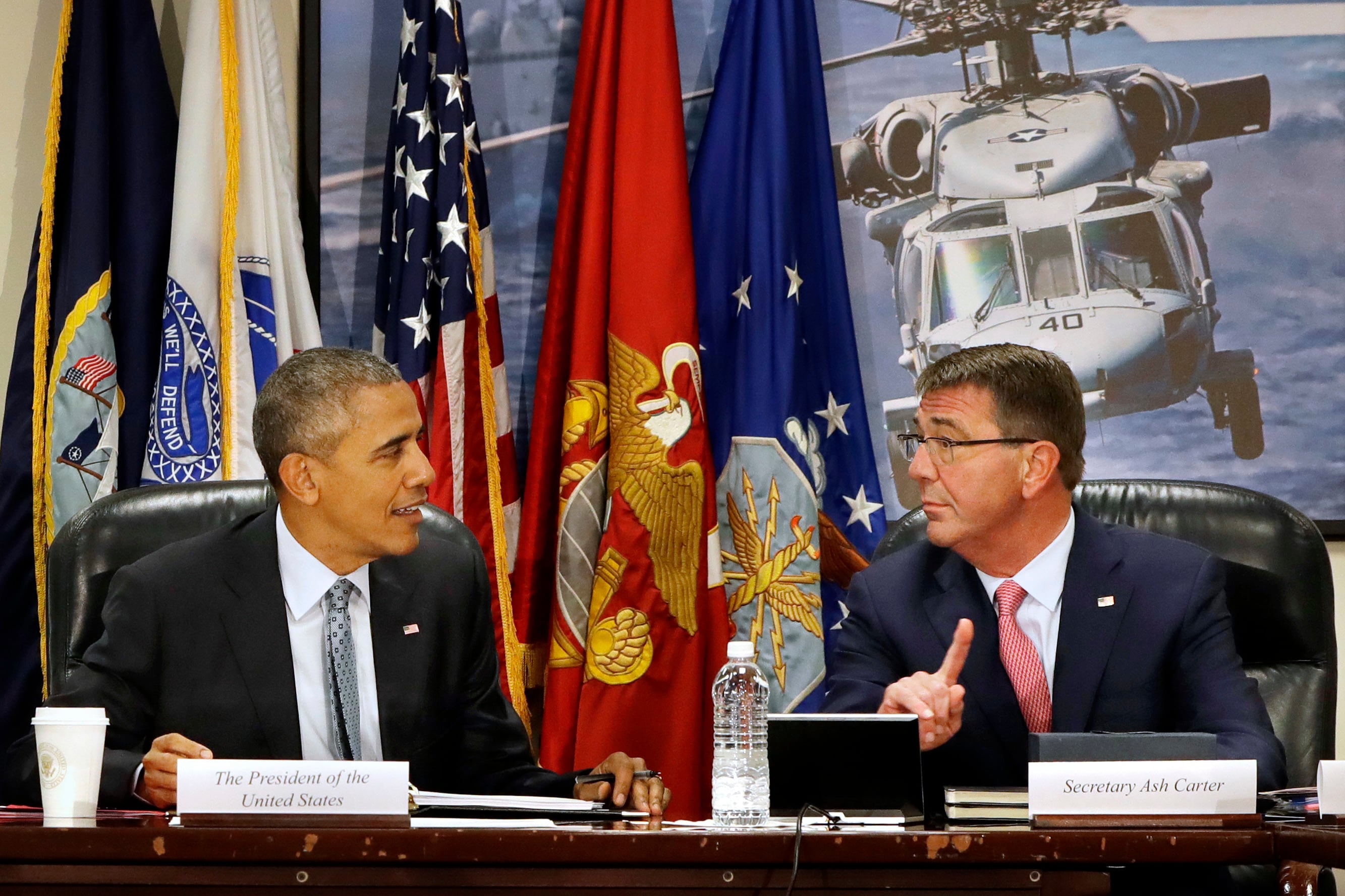President Barack Obama made a rare visit to the Pentagon Thursday and said the two-year-old fight against the Islamic State will inexorably lead to victory.
But the commander in chief also warned that sporadic attacks will continue and eliminating terrorism in not a realistic goal.
"ISIL turns out not to be invincible," Obama said as he listed key military victories of American-backed forces during the past year, including Ramadi and Fallujah.
"They're, in fact, inevitably going to be defeated," Obama said.
"But we do recognize, at the same time, that the situation is complex, and this cannot be solved by military force alone."
Obama's meeting with Pentagon leaders comes as the U.S. is bombing targets in and around the Libyan city of Sirte, a notable expansion of the U.S.-led coalition's military mission against the Islamic State, also known as ISIS or ISIL.
At the urging of the Pentagon, Obama authorized the strikes that started this week and include precision strikes against Islamic State tanks, rocket launchers and fighting positions. Pentagon officials will not say whether small teams of U.S. troops are on the ground in Libya.
Obama typically convenes meetings of the National Security Council at the White House, but over the past year he has occasionally held them at other agencies like the State Department and the CIA. The goal of the meeting at the Pentagon is to illustrate the multifaceted U.S. approach to defeating ISIS.
The meeting with Defense Secretary Ash Carter and other top defense officials lasted more than two hours and focused on ways to intensify the mission to defeat ISIS.
"It is absolutely necessary for us to defeat ISIL in Iraq and Syria. It is not sufficient, but it is necessary because so long as they have those bases, they can use their propaganda to suggest that somehow there is still some caliphate being born, and that can insinuate itself in the minds of folks who may be willing to travel there or carry out terrorist attacks," Obama said.
Obama noted that despite battlefield victories in recent months, ISIS has been able to carry out and inspire small-scale attacks in the United States and Europe.
"The decline of ISIL in Syria and Iraq appears to be causing it to shift to tactics that we've seen before; an even greater emphasis on encouraging high profile terrorist attacks, including in the United States," Obama said.
"So long as their twisted ideology persists and drives people to violence, then groups like ISIL will keep emerging. And the international community will continue to be at risk in getting sucked into the kind of global whack-a-mole, where we're always reacting to the latest threat or a lone actor," Obama said.

President Obama, left, speaks with Defense Secretary Ash Carter at the start of a National Security Council Meeting on the counter-Islamic State group campaign on Aug. 4, 2016, at the Pentagon.
Photo Credit: Jacquelyn Martin/AP
He alluded to Republican presidential candidate Donald Trump's call to ban Muslim immigration and said responses like that can fuel ISIS's support.
"If we start making bad decisions, indiscriminately killing civilians for example in some of these areas, instituting offensive religious tests on who can enter the country, you know, those kinds of strategies can end up backfiring," he said.
"How we react to this is as important as the efforts we take to destroy ISIL," he said.
The Associated Press contributed to this report
Andrew Tilghman is the executive editor for Military Times. He is a former Military Times Pentagon reporter and served as a Middle East correspondent for the Stars and Stripes. Before covering the military, he worked as a reporter for the Houston Chronicle in Texas, the Albany Times Union in New York and The Associated Press in Milwaukee.




